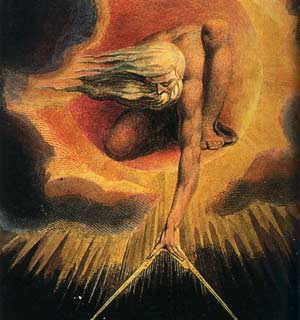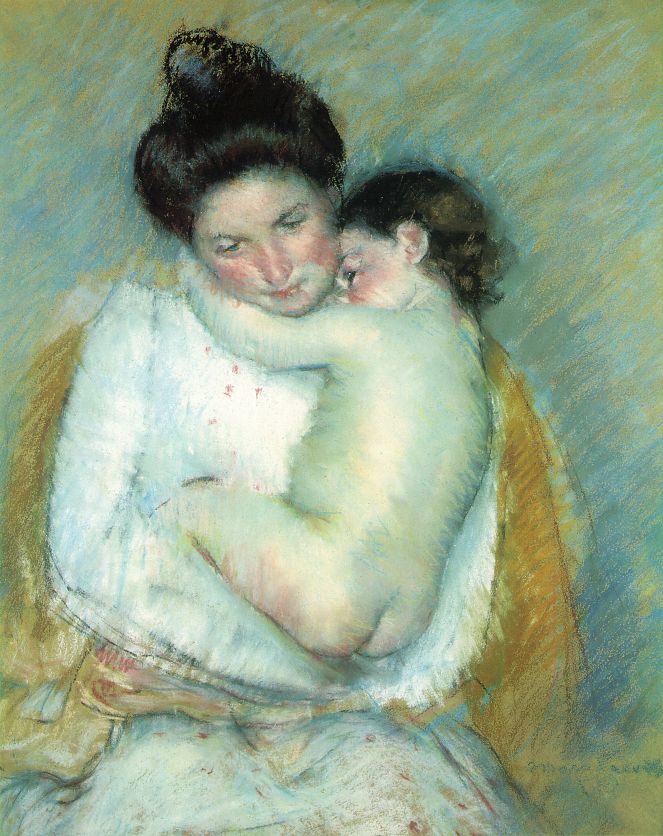





The LORD said to Moses ... "you cannot see my face; for no one shall see me and live." (Exodus 33:17-20)
[God] said further, "I am the God of your father, the God of Abraham, the God of Isaac, and the God of Jacob." And Moses hid his face, for he was afraid to look at God. (Exodus 3:6)
Gideon said, "Help me, Lord GOD! For I have seen the angel of the LORD face to face." But the LORD said to him, "Peace be to you; do not fear, you shall not die." (Judges 6:22-23)
You also took your beautiful jewels of my gold and my silver that I had given you, and made for yourself male images, and with them played the whore; (Ezekiel 16:17)
Claiming to be wise, they became fools; and they exchanged the glory of the immortal God for images resembling a mortal human being, birds, four-footed animals, or reptiles. (Romans 1:22-23)
In my distress I called upon the LORD; to my God I cried for help. From his temple he heard my voice, and my cry to him reached his ears. Then the earth reeled and rocked; the foundations also of the mountains trembled and quaked, because he was angry. Smoke went up from his nostrils, and devouring fire from his mouth; glowing coals flamed forth from him. He bowed the heavens, and came down; thick darkness was under his feet. He rode on a cherub, and flew; he came swiftly upon the wings of the wind. He made darkness his covering around him, his canopy thick clouds dark with water. Out of the brightness before him there broke through his clouds hailstones and coals of fire. The LORD also thundered in the heavens, and the Most High uttered his voice. And he sent out his arrows, and scattered them; he flashed forth lightnings, and routed them. Then the channels of the sea were seen, and the foundations of the world were laid bare at your rebuke, O LORD, at the blast of the breath of your nostrils. (Psalm 18:6-17)
The glory of the LORD settled on Mount Sinai, and the cloud covered it for six days; on the seventh day he called to Moses out of the cloud. Now the appearance of the glory of the LORD was like a devouring fire on the top of the mountain in the sight of the people of Israel. (Exodus 24:16-18)
I beheld till the thrones were cast down, and the Ancient of Days did sit, whose garment was white as snow, and the hair of his head like the pure wool: his throne was like the fiery flame, and his wheels as burning fire. (Daniel 7:9-10 KJV)
Then God said, "Let us make humankind in our image, according to our likeness, ... So God created humankind ('adam) in his image, in the image of God he created them; male (zakar) and female (neqebah) he created them. (Gen 1:26-27)The version of this story from chapter 2 of Genesis describes Adam's creation first followed by Eve's creation as a "helper".
Then the LORD God said, "It is not good that the man should be alone; I will make him a helper (ezer) as his partner." (Gen 2:18),We should not make the mistake of thinking that a "helper" is weak or secondary. God is frequently addressed in scripture as a strong helper, and a "helper" is certainly part of the image of God. The name Eliezer = God is my help; Ebenezer = stone of the helper.
Our soul waits for the LORD; he is our help (ezer) and shield. (Psalm 33:20)
God is our refuge and strength, a very present help (ezer) in trouble. (Psalm 46:1)
As a mother comforts her child, so I will comfort you; you shall be comforted in Jerusalem. (Isa 66:13)
I will fall upon them like a bear robbed of her cubs, and will tear open the covering of their heart; there I will devour them like a lion, as a wild animal would mangle them.
(Hosea 13:8)
Or who shut in the sea with doors when it burst out from the womb?-- when I made the clouds its garment, and thick darkness its swaddling band. (Job 38:8-9)
Yet it was you who took me from the womb; you kept me safe on my mother's breast.
(Psalm 22:9)
(Gen 3:21) And the LORD God made garments of skins for the man and for his wife, and clothed them.
Happy are those who find Wisdom, and those who get understanding, for her income is better than silver, and her revenue better than gold. ... The LORD by Wisdom founded the earth; by understanding he established the heavens; by his knowledge the deeps broke open, and the clouds drop down the dew. (Prov 3:3-20)
The LORD created me [Wisdom] at the beginning of his work, the first of his acts of long ago. Ages ago I was set up, at the first, before the beginning of the earth. When there were no depths I was brought forth, when there were no springs abounding with water. Before the mountains had been shaped, before the hills, I was brought forth-- when he had not yet made earth and fields, or the world's first bits of soil. When he established the heavens, I was there, when he drew a circle on the face of the deep, when he made firm the skies above, when he established the fountains of the deep, when he assigned to the sea its limit, so that the waters might not transgress his command, when he marked out the foundations of the earth, then I was beside him, like a master worker; and I was daily his delight, rejoicing before him always ... (Prov 8:22-31)
The LORD goes forth like a soldier, like a warrior he stirs up his fury; he cries out, he shouts aloud, he shows himself mighty against his foes. For a long time I have held my peace, I have kept still and restrained myself; now I will cry out like a woman in labor, I will gasp and pant. I will lay waste mountains and hills, and dry up all their herbage; I will turn the rivers into islands, and dry up the pools. (Isa 42:13-15)
As the eyes of servants look to the hand of their master, as the eyes of a maid to the hand of her mistress, so our eyes look to the LORD our God, until he has mercy upon us. (Psalm 123:2)
Jerusalem, Jerusalem, the city that kills the prophets and stones those who are sent to it! How often have I desired to gather your children together as a hen gathers her brood under her wings, and you were not willing! (Mat 23:37)
Jesus answered him, "Very truly, I tell you, no one can see the kingdom of God without being born from above." Nicodemus said to him, "How can anyone be born after having grown old? Can one enter a second time into the mother's womb and be born?" Jesus answered, "Very truly, I tell you, no one can enter the kingdom of God without being born of water and Spirit. What is born of the flesh is flesh, and what is born of the Spirit is spirit. Do not be astonished that I said to you, 'You must be born from above.'
(John 3:3-7)
Or what woman having ten silver coins, if she loses one of them, does not light a lamp, sweep the house, and search carefully until she finds it? (Luke 15:8)
You were unmindful of the Rock that bore (yalad) you; you forgot the God who gave you birth (chuwl). (Deuteronomy 32:18)Some words may not apply specifically to one gender but may have a connotation that evokes a masculine or feminine image. For example, the Hebrew word for “mercy” or “compassion” (racham) comes from the same root as womb (rechem). In Hebrew the two would sound similar to the ear and look similar on the page, but the connection is completely lost when translated into English.
Before the mountains were brought forth (yalad), or ever thou hadst formed (chuwl) the earth and the world, even from everlasting to everlasting, thou art God. (Psalm 90:2 KJV)
Nevertheless, in your great mercies (racham) you did not make an end of them or forsake them, for you are a gracious and merciful God. (Nehemiah 9:31)
But unto Hannah he gave a worthy portion; for he loved Hannah: but the LORD had shut up her womb (rechem). (1 Sam 1:5 KJV)
Has God forgotten to be gracious? Has he in anger shut up his compassion (racham)?"
(Psalm 77:9)
"The Father became of woman's nature."
"The Word (i.e., Christ) is everything to His little ones, both father and mother."
Clement of Alexandria, 150-215.
"Just as a woman nurtures her offspring with her own blood and milk, so also Christ continuously nurtures with His own blood those whom he has begotten."
St. John Chrysostom, 347-407.
"He who has promised us heavenly food has nourished us on milk, having recourse to a mother's tenderness. For just as a mother, suckling her infant, transfers from her flesh the very same food which otherwise would be unsuited to a babe, ... so our Lord, in order to convert His wisdom into milk for our benefit, came to us clothed in flesh."
St. Augustine, 354-430.
"You are Father, You are Mother, You are male, and You are female."
Synesius, Bishop of Ptoemais, early 5th century.
"But you also, Jesus, good Lord, are you not also Mother? Are you not Mother, who are as a hen who gathers her own chicks under her wings? Truly, Lord, you also are Mother. for that which others have been in labor with and have born, they have received from you."
St. Anselm, 11th century.
"God is not only fatherly. God is also mother who lifts her loved child from the ground to her knee. The Trinity is like a mother's cloak wherein the child finds a home and lays its head on the maternal breast."
Mechtild of Magdeburg, 1210-1280
Christ was humankind's foster-mother, enduring with greatness and strength of the Deity united with your nature, the bitter medicine of the painful death of the cross, to give life to you little ones debilitated by guilt."
St. Catherine of Siena, 14th century.
"I have been asked what God is doing in heaven. I answer; He has been giving his Son birth eternally, is giving him birth now and will go on giving him birth forever. The Father being in labor, as a woman giving birth to a child, in every virtuous soul."
Meister Eckhart, 1260?-1328?
"God almighty is our loving Father, and God all wisdom is our loving Mother." God "wants us to act as a meek child, saying: 'My kind Mother, my gracious Mother, my beloved Mother, have mercy on me.'"
Julian of Norwich, 1342-1423.
1. Sing praise to God, who reigns above, The God of all creation, The God of power, the God of love, The God of our salvation; With healing balm my soul is filled, And every faithless murmur stilled: To God all praise and glory!
2. What God's almighty power hath made, God's gracious mercy keepeth; By morning glow or evening shade God's watchful eye ne'er sleepeth; Within the kingdom of God's might, Lo! all is just and all is right: To God all praise and glory! 3. The Lord is never far away, But through all grief distressing, An ever present help and stay, Our peace, and joy, and blessing; As with a mother's tender hand, God gently leads the chosen band: To God all praise and glory!